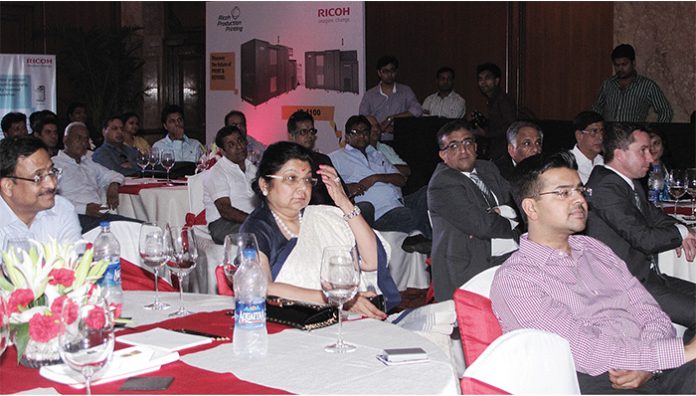In July 2014, Ricoh India organized a seminar ‘Futuristic Trend — Print and Beyond’ in New Delhi to help its clients discover new business potential and retain customers and manage their expectations through Ricoh’s innovative technologies. Apart from Delhi, Ricoh organized the CF Education event in two other locations as well — Mumbai and Chennai.
“Publishing is standing on crossroads. We do not know what is
going to happen tomorrow. We only know what we want to believe. And we truly believe that it is not the end of publishing. The publishing is here to stay as well as the content is here to stay. But the deliverables could change, the
packaging may change — but publishing is here to stay,” said Subhasis Ganguly, vice president — production and content management of Penguin Books India, at the seminar. Ganguly discussed two case studies sighting two books — The Accidental Prime Minister and Khushwant Singh to enlighten the august gathering how digital printing can be helpful in producing books under steep turnaround time and that too with the
quantity that is just required. Of about eight impressions of Khuswant Singh that was printed in one month, four were printed digitally to meet the sudden spike.“Printing digitally did cost us more but the turnaround time
sometimes plays more important role than the unit cost.”
At the event, Manoj Kumar, CEO of Ricoh India, discussed the various changes and challenges taking place in the print and publishing industry. “Often we talk about that digital will replace offset — it’s a myth. Both technologies will co-exist and complement each other,” said Kumar. “The whole consumerism is changing; we want everything on our fingertips. Earlier book publishing was only about printing and selling, but now it is supply chain management as well — everything is changing and has become more challenging,” he said. Kumar also illustrated various opportunities that users can benefit from and shared his personal
experience with digital printing.


















